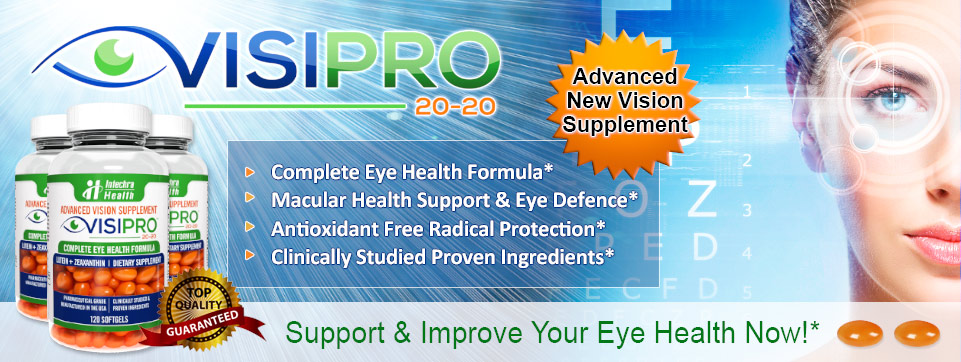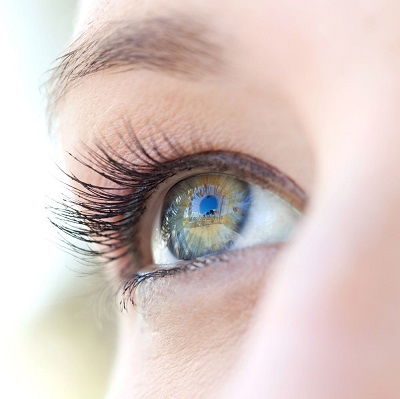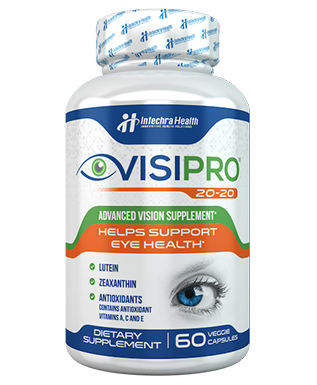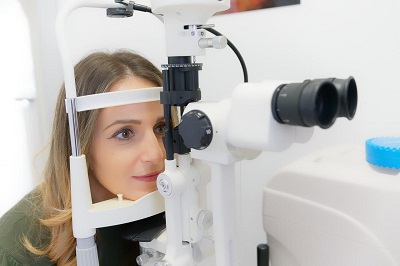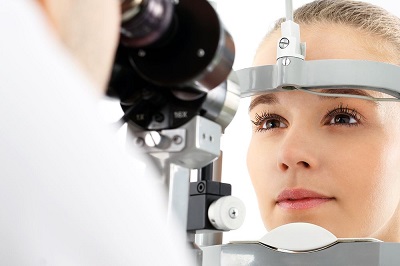Natural eye supplements have become a hot product to help promote vision wellness. But are they really all they promise to be, or is this just the latest fad that will come and go as quickly as all the others?
The truth is that there is substantial evidence to support the use of natural eye supplements to support and protect vision health. When you were encouraged to eat your carrots because they’re good for your eyes, they were on to something. Nutrients from certain vitamins and minerals can benefit your vision and overall eye health.
The Science Behind Natural Eye Supplements and Vision Health
There have been many claims made about what natural eye supplements can do for vision. That said, it’s important to note that the research conducted in this area has primarily been focused on the prevention of age-related eye diseases as well as slowing their progression.
Of this research, the Age-Related Eye Diseases Studies (AREDS and AREDS2) are typically considered to be the gold standard in results so far. They were both very large studies conducted by the National Eye Institute. They were primarily focused on two conditions that impact millions of people across the country, cataracts and age-related macular degeneration (AMD). The AREDS2 study began with the findings from AREDS, then fine tuned the recommendations for eye health supplements.
What is Age-Related Macular Degeneration?
Age-related macular degeneration is the top cause of vision loss among Americans. Over 10 million people in the United States are affected by AMD. Though primarily linked with aging, younger people can also develop other types of macular degeneration. It occurs when a part of the retina called the macula, which is composed of light-sensitive cells, start deteriorating.
The macula is responsible for many parts of vision, so its deterioration can lead to reductions in:
- Focusing
- Viewing fine detail
- Recording what is seen so that information can be transmitted to the brain
What is a Cataract?
A cataract occurs when the eye’s lens clouds. This can worsen with time and can make it harder to see, to the point that it becomes difficult or even impossible to complete your daily tasks. They are very common, particularly among older adults, though they may affect younger people as well. There were 24.4 million Americans living with a cataract diagnosis by 2010.
What Did the Studies Say About Natural Eye Supplements?
AREDS and AREDS2 examined the impact of high antioxidant doses when combined over a number of years. The recommendations based on the AREDS2 study findings were:
- Lutein – 10 mg
- Zeaxanthin – 2 mg
- Vitamin C – 500 mg
- Vitamin E – 400 IU
- Zinc – 80 mg
- Copper – 2 mg (for the prevention of copper deficiency from zinc supplementation)
Taking this formulation in the form of a supplement capsule, twice per day, is the typical recommendation.
What Did These Antioxidants Do for Vision Wellness?
AREDS2 study participants took one of a possible four different supplement formulations. The initial AREDS study results had already identified those natural eye supplements as having potential for vision wellness specific to AMD and cataracts. The participants took their supplements every day for half a decade.
The participants experienced a 25 percent reduction in AMD and serious vision loss risk over the six years following the study. Among the participants who had already received an AMD diagnosis, only those with moderate AMD saw a slowing in the condition’s progress. Individuals whose AMD was very mind or quite advanced saw no significant benefit from the natural eye supplements. Vision loss was not restored as a result of using the supplements in this study.
The AREDS2 formulation with lutein and zeaxanthin reduced the requirement for cataract surgery by 32 percent among the participants whose carotenoid levels were already low in their dietary intake.
What Ingredients Should Be in Your Natural Eye Supplements?
If you’re curious about the type of natural eye supplements you should take for your eye health, the best place to start is a discussion with your doctor, optometrist or eye health specialist.
For individuals concerned with age-related macular degeneration and/or cataracts, the following were the antioxidants found to be beneficial for some people in the AREDS2 capsules.
Lutein and Zeaxanthin
Both lutein and zeaxanthin are carotenoids, which are retina pigments you can also obtain from many plant-based foods. By consuming large quantities of foods containing these carotenoids, or by consuming them as natural eye supplements, your retina’s density can improve. Lutein and zeaxanthin are also ultraviolet light and high-energy blue light filters, which can help to prevent eye damage from those wavelengths.
Vitamin C
A number of large studies have shown that adequate daily vitamin C intake reduces the risk of certain forms of cataracts. Among the total body of research, two also found that combining both vitamins C and E in natural eye supplements can cut down cataract risk while reducing cataract progression.
Zinc
Zinc is a mineral that occurs naturally within the eye. It has strong antioxidant properties that provide cellular damage protection. It is the main mineral in the AREDS2 natural eye supplement. That said, the formula also contains copper as that mineral’s absorption is reduced with zinc supplementation. Therefore, both minerals are present in that formula.
Vitamin B1
Vitamin B1, also called thiamine, is an essential nutrient for your ocular wellness. Research has shown that when this vitamin is taken in combination with other vitamins, it may lower cataract development risk. Further research is necessary before that can be considered conclusive. Preliminary research also indicates that it may be effective in treating an inflammatory eye condition called uveitis, which can result in blindness.
Omega-3 Fatty Acids
The average Western diet doesn’t contain adequate omega-3 fatty acids for ideal nutrition. The primary source of this nutrient is from fatty types of fish, which typically means those fished in cold waters, such as salmon.
That said, a large quantity of omega-3 fatty acid is contained in the retina’s photoreceptor cells. One form of that fatty acid, called DHA, may be involved in retinal cell development as well. This nutrient can help to reduce inflammation and can support retina and cornea cell healing and regeneration following aging and light exposure damage.
Our Top Recommended Vision Supplement
VISIPRO 20-20 Advanced Vision Supplement
VISIPRO 20-20 – Eye Health Supplement for Optimal Vision Support
- Complete Eye Health Formula*
- Macular Health Support and Eye Defense*
- Antioxidant Free Radical Protection*
- Clinically Researched Eye Nutrients*
- Satisfaction Guaranteed
Keep Your Eyes Healthy and Protect Your Vision Now*
VISIPRO™ 20-20 natural eye supplements give your eyes a complete range of helpful eye vitamins and nutrients in their highest quality and purity. Each of the ingredients in VISIPRO is known for protecting eye health while remaining safe to use over time.
These ingredients are carefully balanced and combined within an easy-to-swallow, veggie softgel. Going beyond Vitamin E and Vitamin A – two of the best known vitamins for ocular health – this formulation also contains Lutein and Zeaxanthin, two potent carotenoids are easy favorites of eye health specialists.
The sooner you begin this type of overall eye health strategy, including proper nutrition and supplementation, the sooner you will begin to protect your eyes from various forms of disease and damage.
Should You Be Taking Natural Eye Supplements?
Only you and your eye health professional can know if supplements will help your ocular wellness. Ideally, diet should be the main source of all the vitamins your body requires for optimal health, including vision health. That said, the high doses of the nutrients recommended in AREDS2 are nearly impossible to obtain simply by eating right every day.
Therefore, many optometrists, ophthalmologists and other eye health specialists often recommend supplementation with high quality formulas.
Other things you can do to gain the most benefit from your natural eye supplements include:
- Eating a balanced diet that contains many bright colored vegetables and fruits as well as healthy fats.
- Using a humidifier if your home humidity is low. This may mean you’ll use it on select days, over certain seasons or year-round, depending on where you live. A digital hygrometer can help you to know if your home humidity levels need correcting.
- Remain hydrated by drinking lots of water and eating many fruits and vegetables with a high water content.
- Regularly change your furnace and A/C filters.
- Make and keep regular eye appointments with your optometrist.


